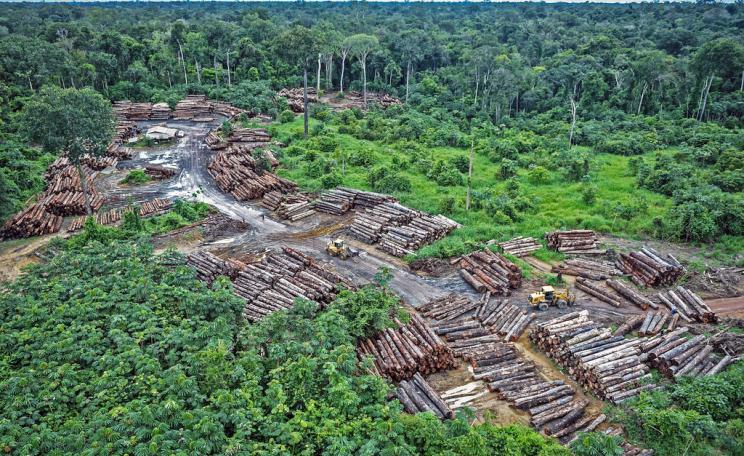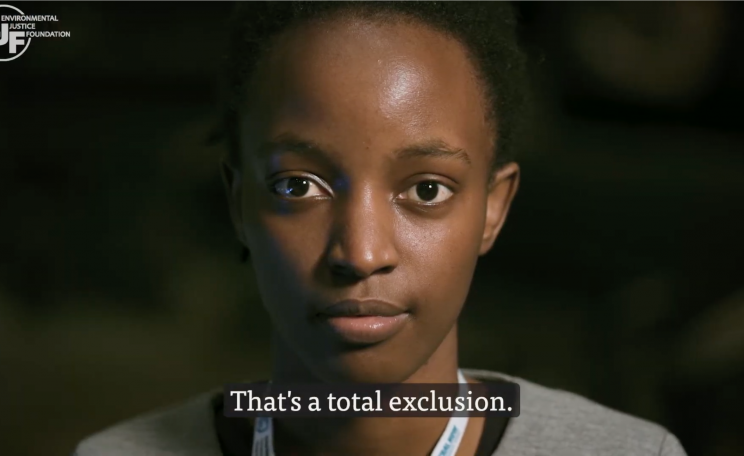The ‘big five’ oil and gas companies made a combined $200 billion profit in 2022.
Our planet is in crisis. Temperatures this summer reached record levels and unprecedented extreme weather events took place on every continent, leading to thousands of deaths and the destruction of homes and livelihoods.
All this happened while the fossil fuel industry saw record profits and governments greenlit more oil and gas development.
The recent UN 2023 Emissions Gap Report reveals that we are currently on track for a temperature rise of 2.9ºC above pre-industrial levels this century. Considering the catastrophic impacts this year of 1.4ºC of warming, the destruction 2.9ºC of heating would cause is unfathomable.
Subsidies
At COP28, leaders are taking stock of the progress made to date on climate action, and there is only one reasonable conclusion they can come to: they are failing us.
They continue to foot the bill for the planetary emergency with fossil fuel subsidies, propping up the cause of the climate crisis with our money. According to the International Monetary Fund, fossil fuels were subsidised to the tune of $13 million a minute in 2022, totalling a record $7 trillion globally.
In the UK, the recently approved Rosebank oil field would effectively hand Norway’s Equinor a taxpayer subsidy worth £3.75bn. Drax power station, the UK’s biggest single source of carbon emissions, also received £617 million in public subsidies in 2022, which is nearly £1.7 million a day.
That year, it burned around 6.4 million tonnes of wood pellet biomass, wiping out old-growth forests and supporting greenwashing low-carbon claims by being excluded from the UK’s reported emissions.
The ‘big five’ oil and gas companies made a combined $200 billion profit in 2022.
Impacts
From traditional fossil fuels to biomass, these subsidies make us all less well off and less secure. Meanwhile, fossil fuel company CEOs have benefited from the climate crisis. The ‘big five’ oil and gas companies made a combined $200 billion profit in 2022.
Fossil fuel consumption is predicted to peak before 2030, but change is not happening fast enough. Every fraction of a degree of warming has real human impacts. There is a direct thread from politicians pumping public money into climate bombs like Drax and Rosebank to women and children forced into a precarious existence in Dadaab refugee camp.
We pay twice for fossil fuels: via vast taxes and then again in dealing with the havoc they cause by heating our world. But it is the world’s most marginalised people who pay disproportionately. Subsidies that are meant to keep energy prices down benefit higher income households who consume more fuel.
Those without access to electricity, cars, and air travel, do not benefit, and those who have done least to cause the climate crisis suffer its worst impacts. More than 91 per cent of deaths from climate and extreme weather disasters occur in developing countries.
Protection
It is clear the system is broken. One single policy change – ending fossil fuel subsidies and investing them into a truly green energy system – would reduce inequality, cut off the finances that are fuelling the climate crisis, and support a more sustainable future.
Instead of funding climate breakdown, public money should be redirected towards insulating homes, improving public transportation, and supporting a rapid renewable energy transition to a real zero-carbon economy.
Spending on fossil fuel subsidies diverts from additional sectors which could improve people’s lives, such as health, education and housing. But there are glimmers of a just future without subsidies.
A case of petrol and diesel subsidy reform in Indonesia in 2015 resulted in savings that allowed for more spending on social protection and measures to benefit the most marginalised, such as clean water access and housing for low-income groups. Unfortunately, the subsidies have since re-emerged.
Decarbonisation
Even with the unfair playing field created by fossil fuel subsidies, renewable energy is already the cheapestform of energy. We cannot afford not to make the switch – from 2000-2019, extreme weather cost at least $2.8 trillion in damages.
This is without even considering the cost of crop yield declines, sea level rise, or the intangible and tragic cost of the human lives lost.
António Guterres, Secretary-General of the UN, has rightly recently said that “Present trends are racing our planet down a dead-end 3ºC temperature rise. This is a failure of leadership, a betrayal of the vulnerable, and a massive missed opportunity. Renewables have never been cheaper or more accessible. We know it is still possible to make the 1.5 degree limit a reality. It requires tearing out the poisoned root of the climate crisis: fossil fuels.”
Tearing that root out begins with stopping our own money being used to drive the crisis on. The solutions exist, and at COP28, the mantra must be mitigation, mitigation, mitigation. Ending fossil fuel subsidies and redirecting finance towards decarbonisation, renewable energy, and social improvement will benefit people and save our planet.
This Author
Steve Trent is the founder and CEO of the Environmental Justice Foundation.







